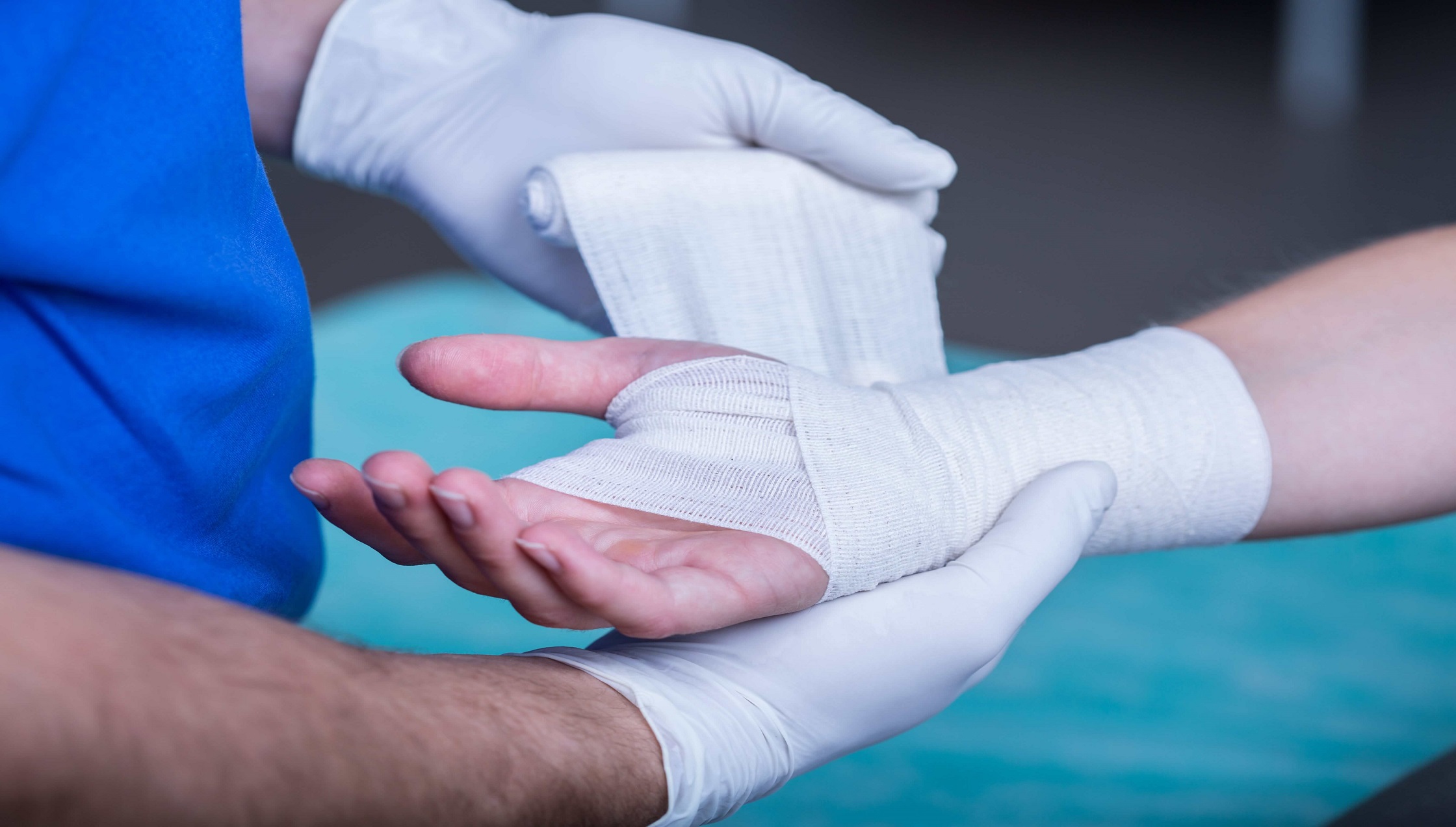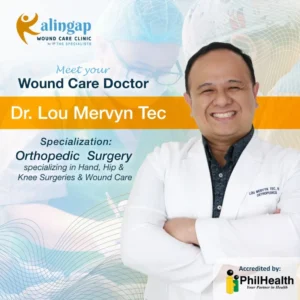What an Open Wound Doctor Does and Why Their Role Matters
An open wound doctor is a medical professional specializing in the diagnosis and treatment of wounds that break the skin’s surface. These wounds can range from minor cuts and abrasions to more severe injuries such as deep lacerations, burns, or surgical wounds that do not heal properly. While minor wounds can often be managed at home, some wounds require specialized care to prevent infections, complications, and long-term damage. Open wound doctors use their expertise to evaluate the wound’s severity, clean and treat the injury, and monitor healing progress. Their role is essential because untreated or poorly managed wounds can lead to infections, scarring, or even more serious health risks like sepsis. They work closely with patients to ensure wounds heal properly, using both traditional and advanced treatment methods. Recognizing when to seek the help of an open wound doctor can make a significant difference in recovery outcomes and quality of life.
Signs That You Need to Consult an Open Wound Doctor
It’s important to know when a wound is more than just a superficial injury. If a wound shows signs of redness that spreads beyond the edges, persistent or worsening pain, swelling, or warmth around the area, these could be indications of infection requiring professional evaluation. Excessive bleeding that doesn’t stop after applying pressure for several minutes is another urgent sign to see an open wound doctor. If the wound has unusual discharge such as pus, or a foul odor, it signals that bacteria may be thriving in the injury. Wounds that fail to heal after two weeks or reopen after initially closing need medical attention. Timely care can prevent complications like cellulitis or systemic infections. Waiting too long to get treatment can lead to prolonged healing, deeper tissue damage, and more complex medical interventions.
Procedures and Techniques Used by Open Wound Doctors
Open wound doctors use a variety of treatments depending on the wound’s severity and type. The first step typically involves thorough cleaning and debridement — the removal of dead or infected tissue — to promote healthy tissue growth. They often apply antiseptics and specialized dressings designed to maintain a moist environment that encourages healing. In some cases, antibiotics are prescribed either topically or orally to combat infection. Advanced methods like Negative Pressure Wound Therapy (NPWT) involve applying controlled suction to the wound, helping draw out fluids and improve blood flow to the area. Diagnostic tests, including cultures or imaging scans, might be necessary to assess the depth of infection or to rule out complications such as abscess formation. These procedures help prevent the wound from worsening and speed recovery. Patients are also educated on proper wound care techniques to follow at home between visits.
How Open Wound Doctors Treat Chronic and Complex Wounds
Certain wounds, like diabetic foot ulcers or pressure sores, require long-term management because underlying health conditions interfere with healing. Open wound doctors carefully assess the patient’s overall health, identifying factors such as poor circulation, high blood sugar levels, or immobility that contribute to chronic wounds. Treatment plans may include wound cleaning, specialized dressings, and therapies aimed at improving blood flow. Coordination with other healthcare professionals, such as endocrinologists for diabetes or vascular surgeons for circulation problems, is common. Regular monitoring helps prevent infections and manage pain, swelling, and tissue damage. For surgical wounds or wounds that keep reopening, surgical intervention or skin grafts might be recommended. The goal is to address both the wound and its root causes to improve the patient’s quality of life and prevent future complications.
What to Expect During Your Visit to an Open Wound Doctor
When visiting an open wound doctor, patients can expect a detailed evaluation process. The doctor will ask about the injury’s origin, duration, and any treatments already attempted. A physical exam will assess the wound’s size, depth, and signs of infection or tissue damage. Photographs may be taken to document healing progress. Based on the findings, the doctor will recommend treatment options tailored to the wound type and severity. Patients will receive instructions on how to care for their wound at home, including how to change dressings and recognize signs of worsening infection. Follow-up appointments are often scheduled to ensure the wound is healing properly. The doctor may also discuss lifestyle changes or adjustments needed to support healing, such as better nutrition or managing underlying health issues.
Prevention Tips Recommended by Open Wound Doctors
Preventing wounds or ensuring proper healing starts with good daily habits. Open wound doctors emphasize the importance of keeping skin clean and moisturized to avoid cracks or irritations that can become entry points for bacteria. Proper first aid for any cuts or abrasions should include cleaning with mild soap and water and covering with sterile dressings. For people with chronic conditions like diabetes, controlling blood sugar levels is critical in reducing wound risks. Avoiding smoking and maintaining a balanced diet rich in vitamins and minerals also supports skin health. Wearing protective gear during activities that carry injury risks can prevent accidental wounds. Regular skin checks, especially for older adults or those with limited mobility, help detect wounds early before they worsen.
How to Find a Qualified Open Wound Doctor Near You
Finding a skilled open wound doctor involves looking for certain credentials and experience. Many wound care specialists hold certifications from professional organizations focused on wound management. Patients should inquire about the doctor’s training, years of experience, and types of wounds commonly treated. Specialized wound care clinics and hospitals often have multidisciplinary teams, which can be beneficial for complex cases. Checking patient reviews or seeking referrals from primary care providers can help find trusted professionals. It’s important to verify insurance coverage and understand what treatments are available locally. When booking a consultation, patients might ask about the approach to wound care, follow-up support, and availability for emergencies. A well-qualified open wound doctor provides not only medical treatment but also education and reassurance.
Common Myths About Open Wound Treatment
Several myths about wound care persist despite medical advances. One common misconception is that wounds heal best when exposed to air. Modern research shows that keeping wounds moist under proper dressings speeds healing and reduces scarring. Another myth is that all wounds require antibiotics; however, unnecessary use can promote resistance and disrupt natural healing. Some people rely on home remedies like applying butter or toothpaste, which can cause infections or irritation. It’s also mistaken that small wounds never need medical attention, but even minor injuries can become serious if infected. Believing that stitches or surgery are always necessary for open wounds is false; many wounds heal well with non-surgical care. Understanding facts over myths helps patients take better care of their wounds and seek professional help when needed.
FAQ: Answers From Open Wound Experts
Q: How long does it take for an open wound to heal?
Healing times vary depending on the wound’s size, depth, and individual health factors. Minor wounds may heal within days to weeks, while chronic or complex wounds can take months or longer with proper care.
Q: Can I treat an open wound at home?
Small, clean wounds can often be managed with proper first aid, including cleaning, dressing, and monitoring for infection. However, wounds that bleed heavily, show signs of infection, or fail to heal should be evaluated by a doctor.
Q: What are the most common complications of untreated wounds?
Untreated wounds can lead to infections such as cellulitis, abscess formation, delayed healing, increased scarring, or systemic infections that may require hospitalization.
Q: Do all open wounds need stitches or surgery?
Not all wounds require stitches or surgical intervention. Some wounds heal well with cleaning, dressings, and topical treatments, but deeper or gaping wounds may need sutures or surgical repair.
Q: Are open wound doctors the same as dermatologists or general surgeons?
Open wound doctors specialize in wound management, which can overlap with dermatology and surgery but is focused specifically on wound healing. They often collaborate with other specialists depending on the wound’s nature.




